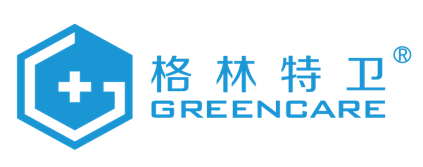how to get a medical exemption from wearing a mask
Introduction:
Wearing masks has become an essential practice in many parts of the world to prevent the spread of infectious diseases, including COVID-19. However, there are individuals who may have valid medical reasons that prevent them from wearing masks. This article aims to provide information on how to obtain a medical exemption from wearing a mask, taking into consideration the legal and medical aspects involved.
1. Understanding the Importance of Masks
Before delving into the process of obtaining a medical exemption, it is crucial to understand the importance of masks in preventing the spread of diseases. Masks act as a barrier, preventing respiratory droplets from being released into the air and potentially infecting others. They play a significant role in reducing the transmission of respiratory illnesses.
2. Medical Conditions that May Justify Exemption
There are certain medical conditions that may justify a person's inability to wear a mask. These conditions can vary, but they often include severe respiratory conditions, such as chronic obstructive pulmonary disease (COPD), asthma, or other lung-related disorders. Additionally, individuals with cognitive or sensory impairments that make mask-wearing challenging may also require exemptions.
3. Consultation with a Healthcare Professional
If you believe you have a legitimate medical reason for not wearing a mask, it is crucial to consult with a healthcare professional. They can assess your specific condition and provide guidance on whether you qualify for a medical exemption. It is essential to provide all relevant medical documentation and history during this consultation to support your case.
4. Obtaining a Medical Certificate or Letter
Once a healthcare professional has confirmed your eligibility for a mask exemption, they can provide a medical certificate or letter stating your condition and the need for exemption. This document will serve as proof of your exemption and may be required in various situations where mask-wearing is mandatory, such as public transportation or certain workplaces.
5. Familiarize Yourself with Local Laws and Regulations
It is essential to familiarize yourself with local laws and regulations regarding mask exemptions. Different regions and jurisdictions may have specific requirements or processes for obtaining and using medical exemptions. This information can typically be found on government health department websites or by contacting relevant authorities.
6. Communicating the Exemption to Others
Once you have obtained a medical exemption, it is crucial to communicate this to others effectively. This can help avoid misunderstandings or confrontations in situations where mask-wearing is expected. Consider carrying a physical copy of your medical certificate or letter to present when necessary to explain your exemption.
7. Understanding the Limitations of Exemptions
It is important to note that while a medical exemption may excuse you from wearing a mask in certain situations, it does not exempt you from other preventive measures, such as practicing physical distancing or maintaining good hand hygiene. It is vital to continue following all recommended guidelines to protect yourself and others from potential infection.
8. Regular Reassessment of the Exemption
Medical conditions can change over time, and it is essential to regularly reassess your exemption status. Stay in touch with your healthcare professional and discuss any updates or changes in your condition that may affect your exemption. This will ensure that you are always up-to-date and compliant with the most current guidelines.
9. Respecting Others' Perspectives
While obtaining a medical exemption is necessary for some individuals, it is important to respect others' perspectives and concerns regarding mask-wearing. It is crucial to remember that masks primarily protect those around you, and by not wearing one, you may inadvertently put others at risk. Being understanding and considerate of others' safety is essential for maintaining a harmonious and healthy community.
10. Conclusion
Obtaining a medical exemption from wearing a mask requires consultation with a healthcare professional, providing relevant medical documentation, and familiarizing yourself with local laws and regulations. It is important to remember that a medical exemption does not exempt individuals from other preventive measures, and regular reassessment of the exemption is necessary. By respecting others' perspectives and following guidelines, we can collectively work towards keeping ourselves and our communities safe.

